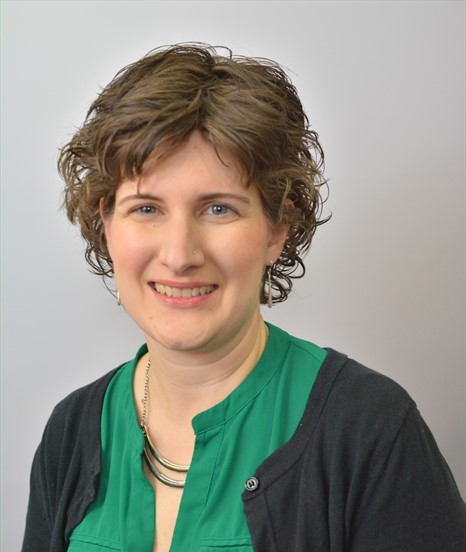
“Information is the raw material of knowledge: used effectively it can lead to wisdom. It is the intellectual equivalent of our food. And just as our eating habits and nutritional intake can be good or bad, with concomitant good and bad effects on our physical health, so can the quality of information we acquire, and the effectiveness with which we process it, affect the quality and effectiveness of our intellectual health.”[1]
My name is Nancy Falciani-White, and I am pleased to introduce myself to you as the new director of Randolph-Macon’s McGraw-Page Library. I have a bachelor’s degree in Interdisciplinary Studies (English, Education, and Music) from Wheaton College in Illinois, and a Master of Science degree in Library and Information Science from the University of Illinois at Urbana-Champaign in 2007. I obtained my Doctorate in Education in Instructional Technology from Northern Illinois University in 2013. My husband and I have two children. In my free time I enjoy genealogy, reading, bookmaking, and gardening. As a family, we enjoy watching movies, biking, and martial arts. I began as Library Director on December 1, and am excited to be joining Randolph-Macon College.
I love books, a fact that will surprise no one, I’m sure. As a librarian, most people assume that’s simply part of my job. While it may sound heretical, I don’t have a favorite book or a favorite genre. I enjoy biographies (Charlotte Bronte: A Fiery Heart), histories (Time Travel: A History), fiction (The Mysterious Benedict Society), children’s fiction (Gone Away Lake), nonfiction (Between the World and Me), historical fiction (All the Light We Cannot See), as well as books that I read for my own professional work and research (e.g., The Living Library: An Intellectual Ecosystem, or Introduction to Information Behaviour). My guilty pleasure reading is typically a mystery (And Then There Were None).
As a child, I read to escape into worlds I thought vastly more interesting than my own. I read books because that was the information that I had access to. When I went to college and then graduate school, I stopped reading anything I didn’t have to read. So much reading was assigned that I could barely get through it all, and if I did, the last thing I wanted to do was read something else! It was only a few years ago that I realized with some shock that my world was profoundly narrower than it had been, and that my thinking was less creative. It was then that I realized that while I had always valued books for the pleasure they gave me, what I had benefited from was the information and worldviews that were expanding my own perspectives in ways I hadn’t appreciated.
You’ve probably heard of “social media bubbles” and “filter bubbles,” the idea that Instagram, Twitter, Facebook, and even Google are only showing us what they think we want to see. Typically, we like and want to see posts, pictures, and news that we agree with. This narrows our world profoundly, with the unfortunate side effect of making our brains lazy. We don’t have to be critical when we view these things, because we already (mostly) agree with them.
We have become passive consumers of information, both because we agree with much of what we see, and because the alternative is terrifying. So much information is available to us, that the idea of critically engaging with it is a task of paralyzing proportions. It’s important to take in good information, evaluate it critically, and use it well. But where to begin?
In today’s world, the college library plays an integral role in helping students deal with all the information that exists and is continually being created. It is no longer enough for the library to be a warehouse full of books. Instead, the college library needs to be proactively engaged in supporting students as they interact with all the information options that are available. What does this mean for you?
It means that every R-MC student has a librarian assigned to her or him. We call them “liaisons”—your personal connection to the library. These librarians are search experts and can help you refine a research question, identify search words, find good sources, and even just find a book on the shelves. Find your librarian here: http://www.rmc.edu/library/library-information/librarian-liasons.
I am excited to be at the McGraw-Page Library, where I continue to be impressed by how deeply the library faculty and staff care about R-MC students. We would love to help you with your research, or hear your thoughts about the library. Not sure who your librarian is? My office door is usually open. Stop by or email me at NancyFalcianiWhite [at] rmc.edu.
Professor Falciani-White
[1] Ford, Introduction to Information Behaviour, p. 1
